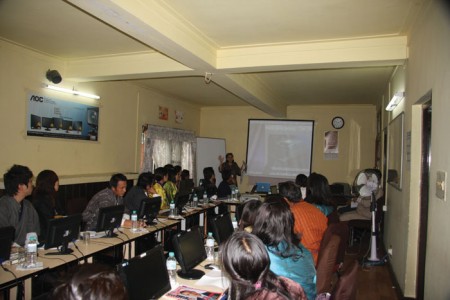Journalism in the Age of Internet
Four-Day Basic Course: Journalists live or die by their sources is one of the basic principles every student is reminded of, as they walk into their journalism classes.
This dictum was further emphasised during the ongoing four-day basic journalism course the Bhutan Media Foundation is conducting for reporters from various news outlets in the capital city yesterday.
Teaching the importance of sources to more than 20 reporters from various media houses, one of the resource persons, Mannika Chopra, who has been herself a journalist for more than 20 years, said journalists should never misrepresent the information their sources provide.
“Don’t lead them on by not telling them that you’re a journalist,” she said. “Always research before going to any source, frame questions in your mind, and your sources will be more open, if they find out that you know the background.”

But if the sources avoided sharing information, she encouraged Bhutanese journalists to visit their homes.
“One of the great places for sources is social media sites like Twitter and Facebook, among others,” she said.
Similarly, Ravinder Bawa, with 12 years of experience in the profession, added that it was always helpful to know a few internet tools for quick and better research. “Academics, doctors and scientist can also be good sources of information,” she said.
By the end of the day’s program, Bhutanese journalists walked out with lines like “keep up with your sources after the first meeting, update your telephone diary, present your story differently, thorough research, specialise on a particular beat, and know the structure of the story like the back of your hand” ringing in their ears.
Apart from importance of sources, participants were also reminded of the importance of editing stories to maintain consistency of a newspaper organisation, and to avoid careless mistakes.
The course began on July 24.
By Thinley Zangmo in Kuensel